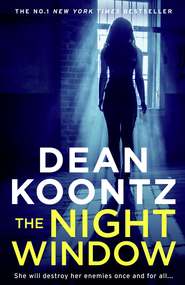По всем вопросам обращайтесь на: info@litportal.ru
(©) 2003-2025.
✖
Life Expectancy
Автор
Год написания книги
2019
Настройки чтения
Размер шрифта
Высота строк
Поля
“You can whack her when we won’t need hostages anymore,” the maniac promised Crinkles. “I don’t have a problem with that.”
“Hell, you can whack both of them,” Honker said. “Means nothing to me.”
“Thanks,” Crinkles said. “I appreciate that.”
“De nada,” said Honker.
The maniac guided us to another pair of wooden chairs. Although he had backup now, he nevertheless secured our cuffs to one of the back-rails, as he had done previously.
The two newcomers began to unload the cargo on the handcart. There were at least a hundred one-kilo bricks of a gray substance wrapped in what appeared to be greasy, translucent paper.
I’m not a demolitions expert, not even a demolitions dabbler, but I figured these were the explosives of which the maniac had spoken.
Honker and Crinkles were physically the same type: burly and thick-necked but quick on their feet. They reminded me of the Beagle Boys.
In the Scrooge McDuck comic books that I loved as a child, a group of criminal brothers were perpetually scheming to raid Uncle Scrooge’s enormous money bin, where he swam through his fortune as if it were an ocean and occasionally recontoured the acres of gold coins with a bulldozer. These felons were blunt-faced, round-shouldered, barrel-chested, doglike creatures that stood erect in the manner of human beings, had hands instead of paws, and owned a signature wardrobe of prison-stripe shirts.
Although Honker and Crinkles chose not to advertise their villainy by the outfits they wore, they were body doubles for those comic-book villains. The Beagle Boys, however, were more handsome than Honker and a lot less scary-looking than Crinkles.
These two worked quickly, tirelessly. They were obviously happy to be occupied in useful criminal activity.
While his associates distributed bricks of plastic explosives to all points of the subcellar, in this room and others, the maniac sat at the study table. He carefully synchronized the clocks on more than a dozen detonators.
He hunched over his work, concentrating intensely. He pinched his tongue gently between his teeth. His dark hair fell across his forehead, and he kept brushing it back, out of his eyes.
If you squinted, blurring the scene just a little, he looked like a twelve-year-old hobbyist assembling a plastic model of a Navy fighter jet.
Lorrie and I were far enough away from him that we could talk privately if we kept our voices low.
Leaning close, she said conspiratorially, “If we’re in the room alone with Crinkles, I’m going to tell him I’m having a female emergency.”
Being in the hands of three psychotics instead of one, hearing herself referred to as it, listening to them discuss our execution with no more emotion than if they had been deciding who should take out the trash: I had thought all of that would surely give her second thoughts about reckless actions based on wildly exuberant optimism. To Lorrie Lynn, three psychotics just meant two more opportunities to bamboozle someone with the female-emergency story, get her hands on the nail file, and stab her way to freedom.
“You’re going to get us killed,” I warned again.
“That’s lame. They’re going to kill us anyway. Weren’t you listening?”
“But you’ll get us killed sooner,” I said, managing to make a whisper surprisingly shrill, and realized that I sounded as if I had a university degree in wimp.
What had happened to the kid who’d been pumped for intergalactic warfare? Wasn’t he still inside me somewhere?
Lorrie couldn’t get her hand out of the cuffs, but she could slip her hand out of mine. She looked as if she wanted to wash it. In carbolic acid.
When it comes to romance, I’d had some success, but I wasn’t a reincarnation of Rudolph Valentino. In fact, I didn’t need a little black book to record the phone numbers of all my conquests. I didn’t even need a page from a little black book. A Post-it note would do. One of the half-size Post-its you stick to the fridge as a reminder: just room enough to print BUY CARROTS FOR DINNER.
Вы ознакомились с фрагментом книги.
Приобретайте полный текст книги у нашего партнера:
Приобретайте полный текст книги у нашего партнера:











